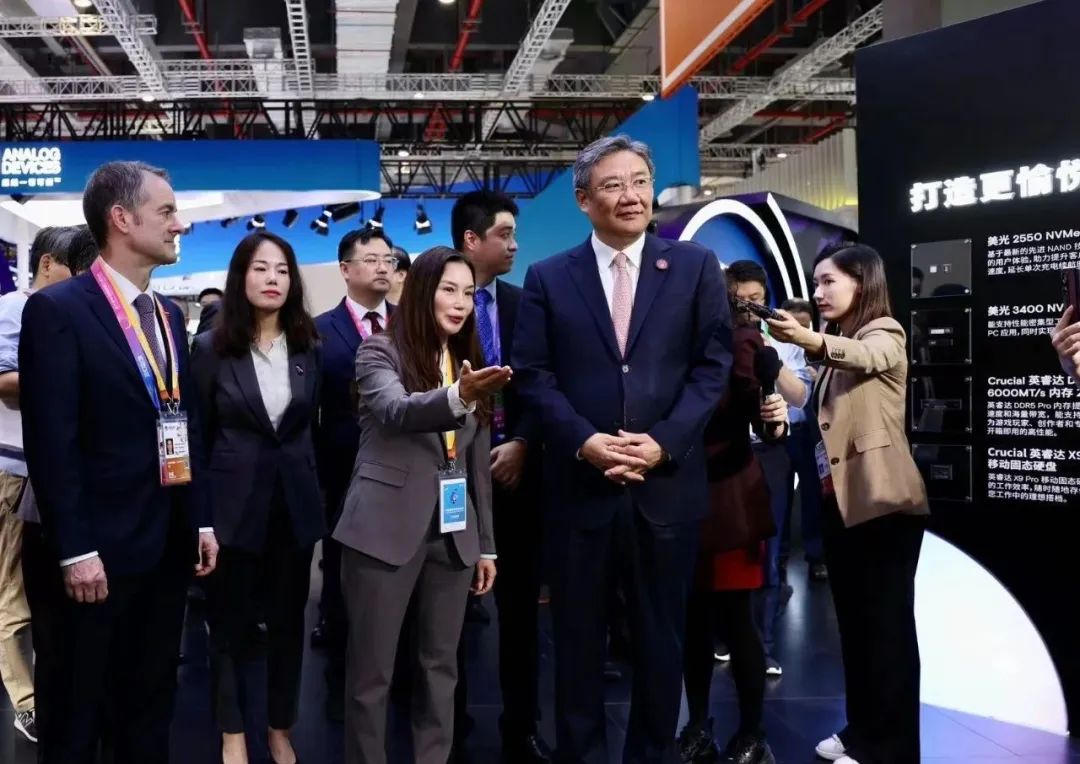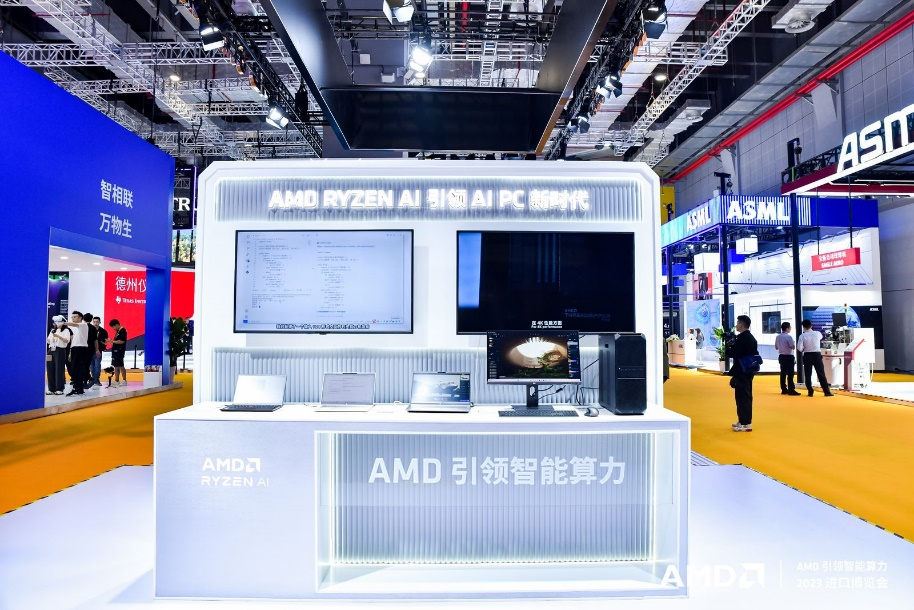By Greg Gao
(JW Insights) Nov 7 -- A number of major US chipmakers, including Intel, Qualcomm, AMD, Texas Instruments and Micron, exhibited at ongoing China International Import Expo (CIIE) in Shanghai in gesture of their commitment to the Chinese market, despite the trade conflicts between US and China.

The sixth annual CIIE from November 5-10 is the flagship trade show by the Chinese government to promote international trade.
Intel and Qualcomm have participated in CIIE consistently for six years. Zhou Bing, general manager of Intel China, told Global Times that Intel has established an extensive presence in China, including a large manufacturing facility in Chengdu, southwestern China’s Sichuan Province and a research center in Shanghai. He emphasized the importance of the Chinese market for Intel, citing the rapid development and significant scale of China’s digital economy. Intel aims to support the growth of China’s digital economy as a semiconductor manufacturer.
Qualcomm showcased a range of new technologies and products at the Integrated Circuit Zone, including the third-generation Snapdragon 8 flagship platform specifically designed for generative AI. It highlighted its “cross-sector collaboration” with Chinese companies, delivering new experiences in various end devices like smartphones, cars, computers, extended reality (XR), wireless earbuds/headphones, and wearables through 5G and AI.
AMD has participated in the CIIE for the third consecutive year. It showcases its comprehensive AI solutions under the theme “Leading Intelligent Computing,” covering data centers, edge computing, and client computing. The offerings include the industry’s first x86-based CPU-powered laptop with an integrated AI engine, real-time generative AI solutions, and intelligent automotive solutions.

Pan Xiaoming, president of Greater China at AMD, stated, “Artificial intelligence is at a tipping point of explosive growth and will define the next era of computing. AI is a top priority for AMD’s future development, and we are integrating AI into all our product lines.”
“We seek to strengthen cooperation with various industries in China in these major areas and jointly promote technological innovation and development,” Pan added.
AMD has also brought a range of intelligent automotive solutions, including the cockpit entertainment and interaction platform, X86-based intelligent cockpit systems, ultra-low-latency electronic rearview mirror solutions, and lane-level multitask visual analysis acceleration solutions, among others.
Micron, a US memory chip giant, attended the CIIE for the first time this year. China’s Minister of Commerce, Wang Wentao, and other government leaders visited Micron's exhibition booth at the expo.
Micron has been doing businesses in China for 20 years and China is one of its largest global markets, with a wide range of Chinese customers and partners in various fields, including data centers, automotive and intelligent edge, mobile communications, and PC clients.
Micron was caught in the trade conflict between the US and China. In May this year China’s cybersecurity administration banned some of Micron’s sales to key China infrastructure projects, saying it failed a security review. Since then both Micron and Chinese government departments have become friendly with each other especially in the cooling tension between China and US.
Micron announced new investment in its China facilities. That includes a DRAM product assembly and testing factory in Xi’an, northwest China’s Shanxi Province and a design center in Shanghai focusing on cutting-edge SSD and mobile NAND products. Additionally, Micron operates three labs in China.
Texas Instruments, a US semiconductor company participating in CIIE for the third time. Qiu Jinwei, regional general manager of Texas Instruments China in Shenzhen, expressed the company’s strong commitment to cooperation with Chinese enterprises. He emphasized the importance of the automotive electronics sector, especially in the context of the explosive growth of the electric vehicle industry, which generates substantial demand for intelligence, digitization, and electronics.
Texas Instruments displayed its analog and embedded processing technology can enhance smarter and more reliable photovoltaic systems, energy storage systems, and electric vehicle charging systems.
In the automotive electronics sector, Texas Instruments showcased innovative products and technologies for electric vehicles and advanced driver assistance systems. In the robotics sector, the company demonstrated intelligent, safe, and cost-effective robot applications using precise motor control, edge processing, smart sensors, and real-time communication technology.








评论
文明上网理性发言,请遵守新闻评论服务协议
登录参与评论
0/1000